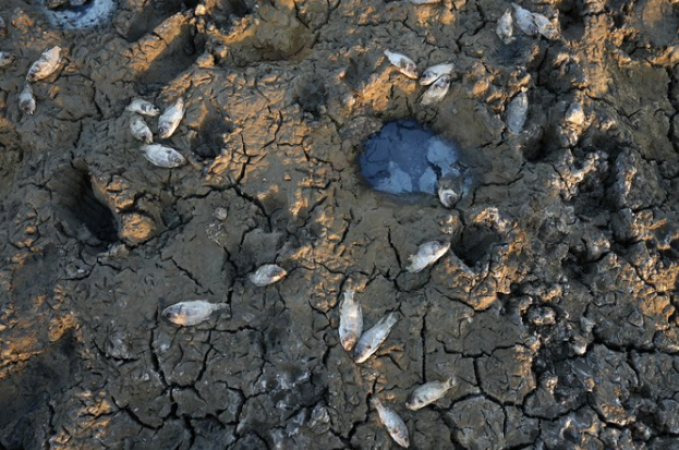
Baghdad: Iraq's Ministry of Water Resources has issued a grave warning as the country grapples with a severe water crisis, marked by rapidly depleting reservoirs and historically low water levels in the Euphrates and Tigris rivers, its primary water sources.
The ministry reports an alarming 20% drop in water levels since last year, attributing this dire situation to a combination of factors, including the detrimental effects of climate change, reduced rainfall, and escalating water demand.
The repercussions of Iraq's water shortage are profound, causing devastating effects on the nation's economy and environment. Agriculture, a cornerstone of the country's livelihood, is severely affected as farmers struggle to find sufficient water to irrigate their crops, leading to lower yields and heightened food insecurity.
Also Read: US Sends 'Message of Strength' to Iran with New Gulf Deployment
The scarcity of potable water also poses a significant health risk, as drinking water supplies dwindle, potentially giving rise to waterborne diseases.
One of Iraq's natural treasures at risk is its marshlands, a UNESCO World Heritage Site, that are facing degradation due to the water shortage.
These unique ecosystems, vital habitats for wildlife, are threatened, further adding to the ecological consequences of the crisis.
Also Read: Israelis Demonstrate in Support of an Independent Judiciary
The potential for social unrest looms large as the water scarcity exacerbates existing challenges in the country. Frustration with the government's efforts to combat the crisis may fuel discontent among the population, exacerbating tensions.
Nonetheless, the government of Iraq has taken some initiatives to address the water crisis, albeit facing considerable obstacles. Their efforts include the construction of new dams and reservoirs to conserve water for future use, and promoting water conservation practices, such as fixing leaks and adopting water-efficient appliances.
Furthermore, steps are being taken to reduce water demand by enhancing irrigation efficiency and encouraging water-efficient agricultural practices.
Despite the enormity of the challenge, the government remains committed to finding sustainable solutions to secure the nation's water supply for the future.
Also Read: 12 people are detained in Indonesia for engaging in illegal organ trafficking
As climate change continues to exacerbate the crisis, comprehensive policies and strategic investments are crucial to ensure Iraq's resilience in the face of this formidable water crisis. Collaborative efforts between government agencies, communities, and international partners are essential to mitigating the immediate impacts and fostering a more sustainable future for Iraq's water resources.